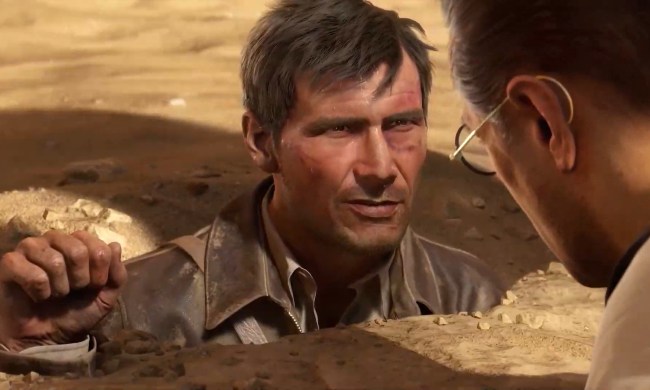Microsoft just dropped a bombshell in announcing its intentions to acquire Activision Blizzard for nearly $70 billion … and I couldn’t be more scared for what this means for the industry at large.
We already saw Microsoft building up to these large-scale purchases through small, independent studios early on, followed by the massive Bethesda purchase that was finalized last year. I had hoped that that would be the last purchase of that scale for Xbox, but I was very, very wrong.
Buying Bethesda (or more accurately, ZeniMax Media) felt like it was crossing a line. Xbox already had around 20 studios under it, and adding in an entire publisher felt like a desperate move to bolster its library with exclusives and valuable IP. It made me very suspicious that Microsoft was trying to essentially buy success for this generation of consoles, but the latest purchase is genuinely frightening for what it means for everyone, not just Xbox.
Watch out Disney

Looking back at the Bethesda buyout, there was already a huge amount of confusion, anger, and worry across the gaming landscape. This was in part due to Microsoft’s less than clear messaging regarding exclusives, plus the fact that some of its new studios were still under contract to release PlayStation exclusives. Even if messaging this time is clear regarding the exclusivity of all the new franchises Microsoft just snatched up, the anger and worry will not be stifled. In fact, it will only be worse this time.
We’ve been moving toward a world where independently operated publishers could become less common. Microsoft, Tencent, and Embracer (to name a few) have been picking up these studios like they’re hoarding the last couple slices of pizza from the box. Sony has made a few purchases as well, but nothing nearly on the scale as this.
The problem with all this consolidation, speaking specifically about Microsoft here, is that it builds walls. Recall when Disney purchased … seemingly every major media franchise. Disney+ quickly became the only place to access them and much of its content began to feel the same as IPs adapted to Disney guidelines. Now the same could be true for Xbox.
The repercussions of this deal are coming — and I don’t think we’re going to like them.
For a company touting that it wants to let people play how and where they want, Microsoft should really add an asterisk that says “unless you’re on PlayStation,” because that’s what this purchase could really mean. Between Activision Blizzard, Bethesda, and its own studios, Xbox has all the biggest western IPs exclusive to its platforms now, with the main exception being EA games.
It’s becoming difficult for Sony to compete. It is more successful by all metrics than Xbox, but it’ll need to break out some blank checks if it wants to mitigate more disaster. The endgame seems dire. Say that Sony responds by buying up major eastern publishers like Capcom, Sega, and Square Enix. That would further divide and stagnate the market.
It’s gross that Xbox can create a potential monopoly by buying studios and games away from its competition. That’s capitalism at its worst.
Competition breeds excellence

Microsoft’s resurgence following the Xbox One’s rough life cycle was born out of competition. Sony dominated Microsoft last generation thanks to killer first party games and that forced Microsoft to adapt. Now, Microsoft doesn’t have to worry about making its own games to compete with Sony because it bought all the biggest IP it could to keep up. Game Pass itself is only such a good deal because it had to be. Expect that service’s price to jump very soon now that it’s not playing defense.
Even within this new mega Xbox, will there be room for another shooter to compete with Call of Duty? Why would Microsoft want to split its own sales? Microsoft would now risk stepping on its own toes if it develops competing shooters. The more studios Microsoft acquires, the more fearful I become that it could limit its own creativity.
Game Pass is only such a good deal because it had to be.
Some of the biggest franchises we see today are a result of one studio competing with another. Mario and Sonic traded blows early on, the Mortal Kombat and Street Fighter franchises continue to spar, and Call of Duty beat out Medal of Honor. This acquisition makes me terrified that risks, innovation, and creativity will be relegated to a much smaller scale that doesn’t interfere with the big, established money makers.
A bad premonition
I’m genuinely nervous that this marks a major turning point in the games industry for the worse. Xbox has presented itself as cool, friendly, and pro-gamer for a while now, but that’s just good marketing. This is a company, not your friend. It will do whatever it can to make the most money possible.
PlayStation is the last real competition it has, but it’s on a time limit. It needs to bolster up its own comparable conglomeration of studios, or take the Nintendo approach and carve out its own niche separate from what Microsoft is doing.
Games have already been feeling less risky and exciting with development taking more time and money than ever before. Bringing more studios under a single roof is only going to exacerbate this stagnation. I pray this is the last acquisition we see Microsoft make, but can’t realistically think it will be. Until it risks an actual monopoly, it’s going to keep pushing. It probably won’t be in the next couple of years, but the repercussions of this deal are coming — and I don’t think we’re going to like them.



